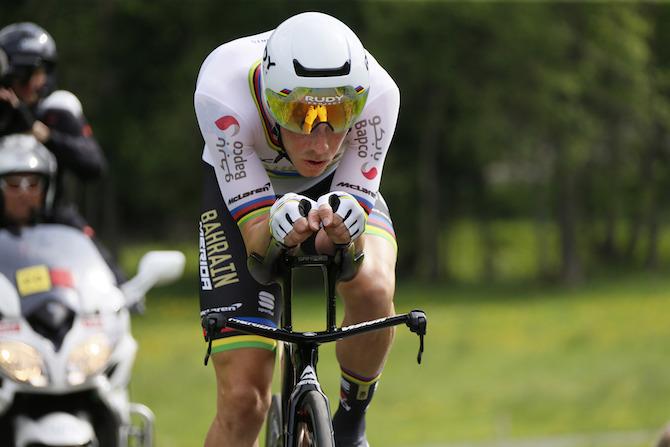What next for troubled Rohan Dennis?
Bridges need building between rider and Bahrain-Merida but it may be too late
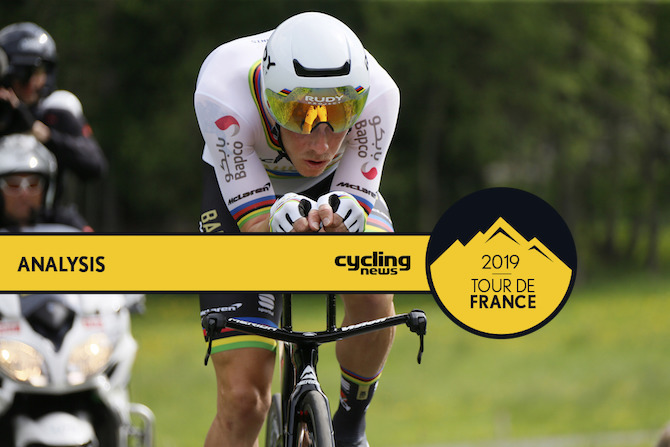
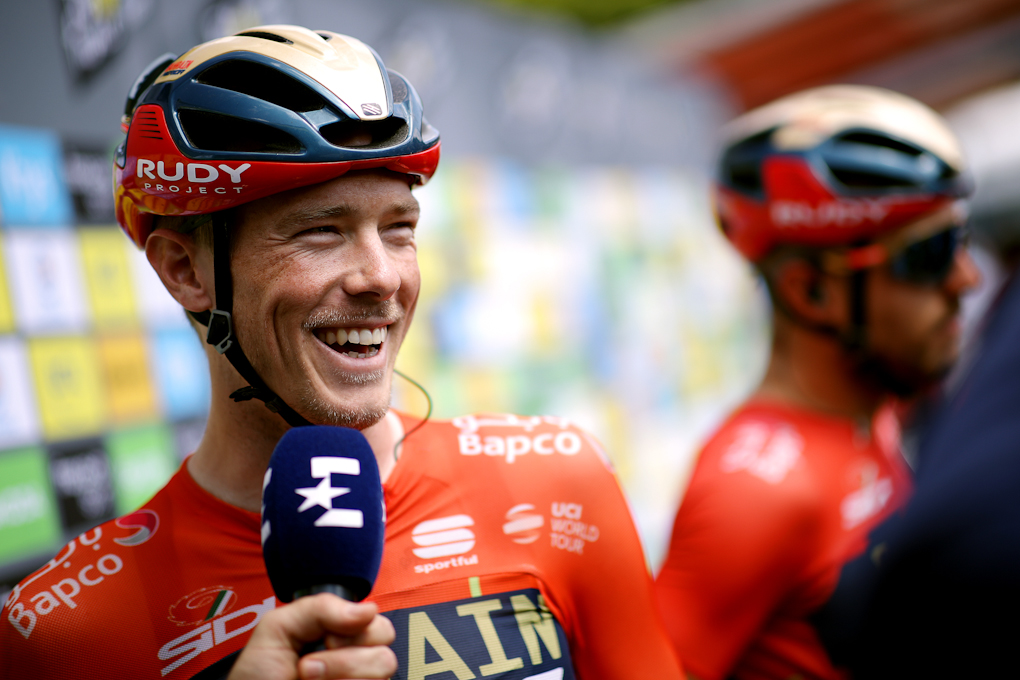
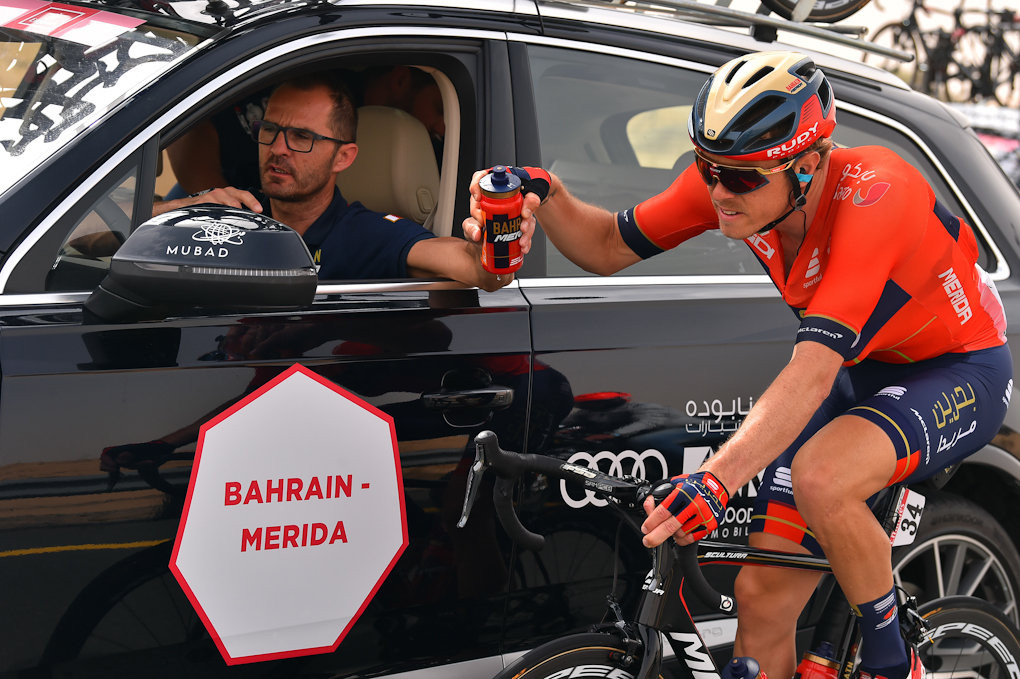
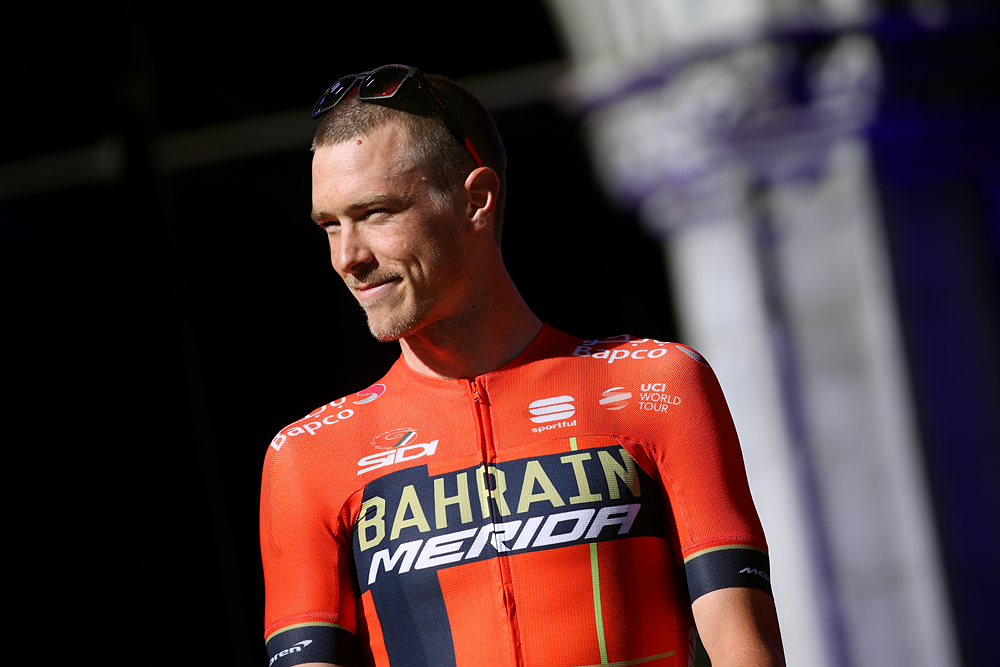
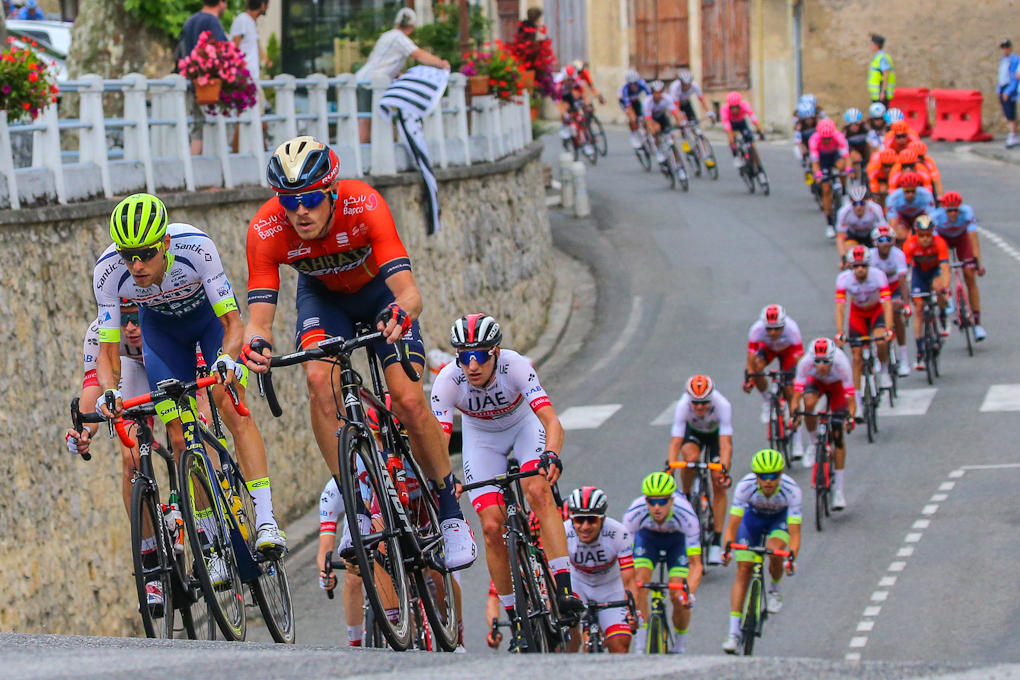
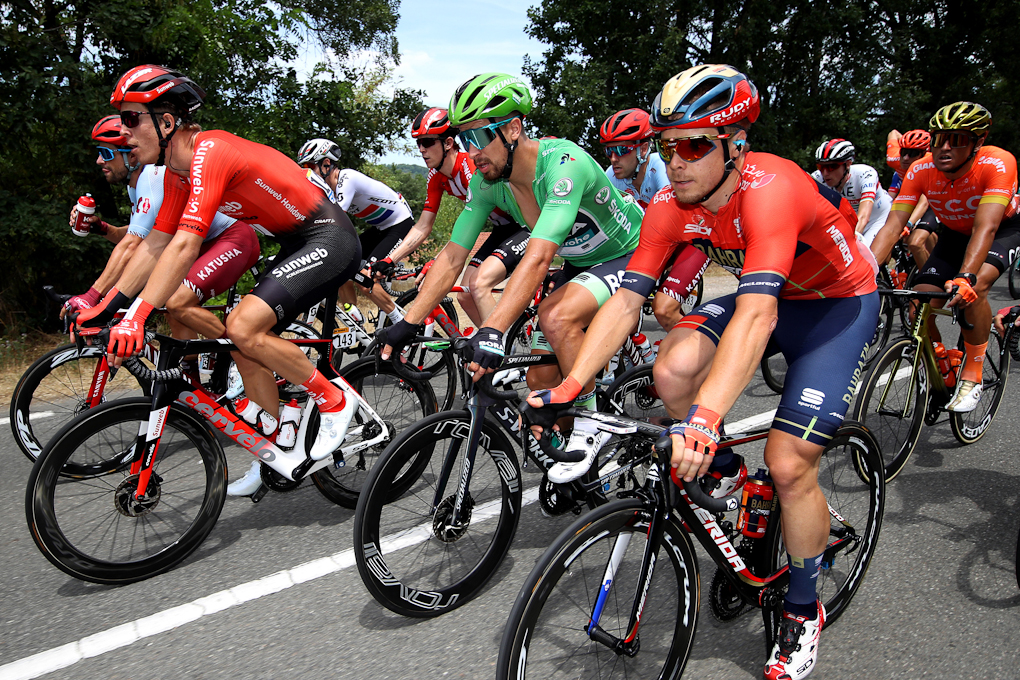
In August 2012, it was announced that Rohan Dennis had signed a multi-year contract with Jonathan Vaughters' Garmin-Sharp squad. Described as a 'rare talent' by the American, the Olympic pursuit silver medallist from the London Games seemed destined for a long and successful career at the top of the sport. He had everything, it seemed, from the talent to the dedication required to make it as an elite professional.
Yet despite numerous successes on the road in the seven years since, the Australian currently stands at a crossroads after his withdrawal from the Tour de France last week. After pulling himself out of the race in such a public manner, and to his team's huge surprise, he has lifted the lid on a damaged relationship between athlete and squad, and where things move from here are difficult and delicate to predict.
There are three present issues. Firstly Dennis' personality, secondly the team's management of the situation, and finally the perceived equipment and clothing shortcomings that have surfaced in public so spectacularly. There are no easy answers or solutions, but these three pillars of conflict threaten to not only disrupt Dennis' season but his future on the team.
On stage 12 of the Tour de France, when race radio crackled through that Dennis had quit the Tour on the eve of his main objective in the race, the immediate reaction within the press room was one of lukewarm surprise. After all, riders quit the Tour on a regular basis. However, when the team made the critical mistake of announcing 'an investigation' into their rider's sudden disappearance, they opened the floodgates to questions and speculation. It became quickly apparent that this wasn't a typical abandon, but then again nothing about Dennis is typical.
In the hours that followed, it was clear that Bahrain-Merida and their partners McLaren were struggling to cope with the situation. Manager director Milan Erzen stated that he was on holiday and refused to comment to Cyclingnews, general manager Brent Copeland was tied up in Bahrain for a number of important meetings, while even the usually slick operations team at McLaren seemed unable to get a grip as they met with Dennis and his agent Andrew McQuaid on the evening of the rider's withdrawal. When contacted by Cyclingnews, one senior member at McLaren had thought that Copeland was on the ground in France dealing with the situation when in reality he was in the Middle East.
This raises the question of how the management is currently operating after the recent announcement that Team Ineos coach Rod Ellingworth would become the team principal in October.
Read more:
The latest race content, interviews, features, reviews and expert buying guides, direct to your inbox!
- Bahrain-Merida confirm Ellingworth to join as Team Principal
- Tour de France: Bahrain-Merida left wondering at Dennis' sudden abandon
- Bahrain-Merida launch investigation after Rohan Dennis quits Tour de France
- Too soon to make any judgement calls on Dennis' Tour de France exit, say Bahrain-Merida
- Latest on Dennis' future as Alaphilippe stuns the Tour de France – Podcast
On Friday, 24 hours after the saga began, John Allert from McLaren told Cyclingnews: "Rohan is a contracted rider and our first concern is with him now that he's jumped out of the Tour, and his immediate recovery after what's been a pretty arduous series of stages. There's a schedule and there's no reason to think that we'll move from that. I caught up with him last night."
When asked if Dennis had given him a truthful account as to why he walked out on the race, Allert replied: "I'm not going to go into a private conversation that I had with him, other than to say it's a complicated situation. He's operating at the very extremes of what he's able to achieve, and no one knows Rohan better than himself. If he feels that he doesn't have what he needs to put his best time down here, then regrettably he decided to withdraw.
"We're obviously disappointed about that, and if that's the call he made then I have to respect that. It's irrelevant whether I agree with it. Only Rohan himself know how he feels. I'm disappointed, the team is disappointed, but no one is more disappointed than Rohan himself. He showed what he could do with our bike on our set-up at the Tour de Suisse, and we've no reason to think that he couldn't have gone out there and done it again. We need to work hard to find out what led to this."
For those in the know, and certainly those in the peloton, Dennis' departure from the race at such a critical time was not the major surprise that it was first made out to be. According to several sources in and around the team, the Australian has been at war with the management since the beginning of the year over equipment and clothing. The Tour episode was simply the final straw after Dennis received several new time trial skinsuits two days before the time trial. Dennis was unhappy with all of the garments. Had they met Dennis' high standards, or if the Australian had compromised, then perhaps he would have ended stage 13 with another Tour de France stage win to his name. We'll never know, but the battles over equipment stretch further.
Impressed with the custom handlebars used by time trial specialist and new Hour Record holder Victor Campenaerts, the Australian asked for the same for his own time trial machine earlier this year. He was initially denied due to the fact that the Lotto Soudal set-up was not in line with the equipment on offer from Bahrain-Merida's sponsors – in this case Vision. According to a source within the team, Dennis threatened to pull out of a planned media event if the request for the bars wasn't met. Eventually, the team caved and Dennis got what he wanted. However, the media event never took place.
Bahrain-Merida brought Dennis into the McLaren wind tunnel three times between December and this spring, with Merida also investing significant funds into a new time trial bike. Last year, when the signing was first made public by Cyclingnews, Copeland admitted that he knew that Dennis was a challenging rider, but the manager admitted that most champions are challenging in their own ways. At the same time, Copeland added that this characteristic was what distinguished the elite of the elite from other riders.
As well as equipment, the team and Dennis have clashed over race schedules. In April, after the team changed his plan from two races in the Ardennes, Dennis raced two days at the Tour of Basque Country before surprising the team by not starting the third stage.
According to sources at the team, Dennis felt he had raced his scheduled two days in April and had therefore fulfilled his contractual obligations. According to sources, Dennis felt that two days at the Ardennes equalled two days in the Basque Country, and there was no need to carry on with the rest of the race. The team management were left scratching their heads when the world time trial champion packed his bags and duly left the race. On Friday, Gazzetta dello Sport also reported that Dennis had a heated argument with a teammate at a race this spring that almost turned physical.
Cyclingnews contacted Dennis' agent with specific questions relating to several of these topics. We were simply told, "Rohan is back home and resting, recovering, and looking forward to achieving his goals towards the end of the season."
Dennis already came to Bahrain with a reputation of being on the far side of demanding. He was transferred out of Garmin-Sharp halfway through the 2014 season in a rare mid-season move to BMC Racing. There he linked up with Allan Peiper – who had initially helped bring him to Garmin – and the pair worked well together for several years. Peiper figured out how to manage Dennis' expectations and personality, when to apply pressure, when to dial things back and when to give the Australian space. That relationship ended, however, when BMC Racing broke up at the end of last year.
In an interview with Procycling magazine in 2018, Dennis gave a fascinating insight into how his mind worked. In the raw transcript from that piece, he said: "My sports psych' now is more for the mental side of things while I'm on the bike. If I'm happier on the bike, 99 per cent of the time I'm happy off the bike. For me, it's been a case of trying to get the best out of me on the bike, and then using those lessons off the bike as well. You're in a more stressful situation when you're on the bike, so why would we not learn from that?"
When asked about his prickly nature he added: "What I've found is that it's not so much the big things that annoy me, because they're out of my control. They're completely out of my control. It's the things that are within my control, the things that could have been avoided, which I've either brought up as an issue, and it hasn't been addressed or has been ignored, and then it happens again and again, and then it's like, 'Why isn't anyone listening to me? What does it take?'
"And that's where it's sort of... It's my delivery of telling someone something. Sometimes they probably think, 'He's attacking me, he's having a crack at me,' and they don't actually listen. They've just gone, 'He's angry – I'm not going to listen.'
"Whereas, slowly, I'm getting to the point where I'm articulating that message a little better. It's getting through more often. And most of the time it's behind closed doors. That's where I like to keep it – that's where I feel it should be kept. Not at the front of the bus."
He added: "Manuel Quinziato [Dennis' BMC teammate who retired at the end of the 2017 season] once said to me: 'Be like water.' I was, like, 'Take your buddhist crap somewhere else, and he was, like, 'No – seriously – in the peloton, be like water. If something gets in front of you, just flow around it.' That makes sense, and I understand where he's coming from, but it's just hard for me to always do it. I'm just not that kind of person who thinks, 'Oh well, I'll just go around it.' I want to go through it. I want to smash that rock out of the way so that I can take the fastest possible route. And that's just the way I think some of us are.
"Obviously I have to deal with what I've forged for myself, and so far I have been pretty good at trying to keep it behind closed doors. But different people understand me in different ways. Some people understand me more, and others less," he said.
What next?
Where all this leaves Dennis is unclear. The Bahrain-Merida and McLaren elements within the management are uncertain about how to deal with their unpredictable star. He earns over one million euros a year, and is the reigning world time trial champion. His class on the bike is undeniable, while plenty of people who have worked with him will tell you how dedicated he is to being a professional rider. When Dennis is 'on', so to speak, he is a rider of unquestionable talent who also has the ability to deliver on the biggest stages.
What's more, within the chassis lies an engine with untapped potential that perhaps even Dennis doesn't yet realise. His recent climbing exploits at the Tour de Suisse were a timely reminder of the rider Dennis could one day become.
However, the baggage and the stress are part of the package, too. That was publicly made clear when Dennis was ushered away from the team bus on Thursday with his agent by his side as his team management looked paralysed by the magnitude of the situation. Communication – an issue with Dennis – is a two-way thing, and when it break down at the heart of the most pressurised race in the world, it's simply a recipe for disaster. That said, it was Dennis who decided to pull the pin, which then led to the questions over equipment and clothing.
When asked by Cyclingnews if Dennis' departure from the Tour showed a lack of respect for his team and sponsors, Allert replied: "It's not an issue of respect. It's an issue of preparedness. If an elite athlete from any sport doesn't think that he or she can go out there and do what they need to do, then I can't judge that. Our job is to make sure that the team is preparing him in the best way possible. I'm very confident that we were doing that, but we need to pick up the pieces in the coming days and find out what led us to this.
"It's not a case of disciplinary action. We're still in the process of establishing all the different variables."
When asked if Dennis would be on the team next season, Allert said: "I definitely hope that he will be. At the moment we've got a contract and a schedule."
It would be no surprise if Dennis leaves on another mid-season transfer or departs by mutual consent at the end of the calendar year, despite having another year left on his current deal.
That said, there are still those within the team who are looking to find a resolution that appeases Dennis' demands and keeps him on board. They can see the potential and obviously think that the situation can be resolved.
However, if, or when, Dennis leaves, the next question is whether there is a team out there willing to take a risk on such a rider. CCC Team could be an option. He knows many of the backroom staff, including time trial specialist Marco Pinotti. They've picked him up before, back in 2014, when they raced as BMC, and they have the funds. Trek-Segafredo are shy of a time trial specialist, too, but the options are not as long as they could or should be. It's highly unlikely that he would race for Mitchelton-Scott, while a move to France, or back to Slipstream, is off the table.
However, even his 2020 team is immaterial at this point. The main focus for Dennis right now should be on regrouping and making sure that he is in the right mental state before deciding on his next move. That's easier said than done, but it's imperative for his future.
At this point, only one thing is certain: Rod Ellingworth is probably glad to be watching the Tour on the sofa and waiting for the saga to blow over.
Daniel Benson was the Editor in Chief at Cyclingnews.com between 2008 and 2022. Based in the UK, he joined the Cyclingnews team in 2008 as the site's first UK-based Managing Editor. In that time, he reported on over a dozen editions of the Tour de France, several World Championships, the Tour Down Under, Spring Classics, and the London 2012 Olympic Games. With the help of the excellent editorial team, he ran the coverage on Cyclingnews and has interviewed leading figures in the sport including UCI Presidents and Tour de France winners.
